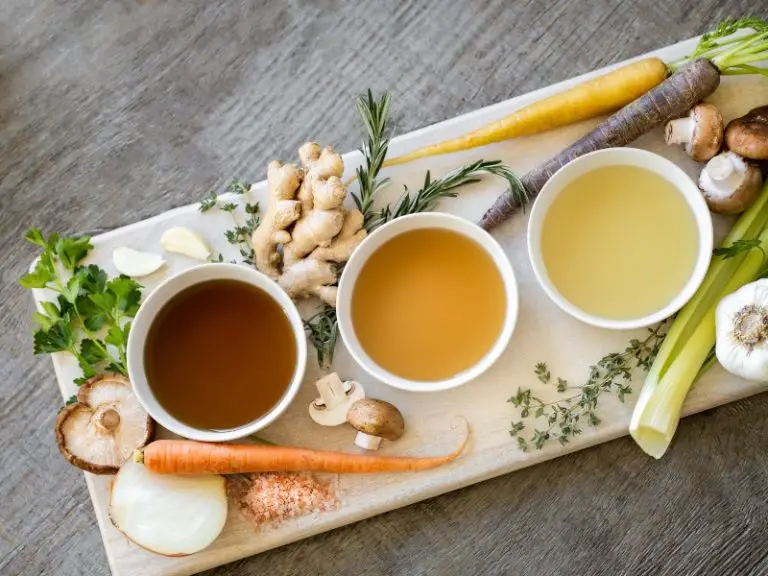Open Farm Sunday, 12th June 2011
Open Farm Sunday – 12 June 2011
www.farmsunday.org
Discover Life on Britain’s Farms
Discover at first hand all about life on Britain’s farms. That’s the message from farmers across the country, as they prepare to open their farm gates on Open Farm Sunday (12 June 2011). This annual event organised by LEAF (Linking Environment And Farming) is a must for anyone interested in how farmers produce our food, and the ways they care for our countryside too.
Do you know…
Where your food really comes from?
How many jobs a farmer does every day?
What technology is used on a modern farm?
How many insects and birds there are on a farm?
How farmers play a vital role in caring for the countryside?
You can discover the answers to these questions and so much more by visiting a farm on Open Farm Sunday. There are so many exciting things you and your family can do – from tractor and trailer rides, to farm walks and nature trails, and even discovering how worms are a farmer’s best friend. You might have the chance to see sheep being sheared, cows being milked or chicks hatching! You might also get the chance to build a bug-hotel, go pond-dipping or see pig racing. Each farm is different and Open Farm Sunday provides a great opportunity to experience REALfarming at first hand and to meet Britain’s famers.
12 June 2011 will be the sixth Open Farm Sunday and over 450 farms across the country, from Cheshire to Cornwall, Flintshire to Fife and Norfolk to Northumberland, are expected to open. To find out which farms in your area are taking part visit www.farmsunday.org. For up-to-date campaign information and to let us know about your time on the farm, follow us on Twitter – twitter.com/openfarmsunday.
Editor’s note:
- LEAF (Linking Environment And Farming) www.leafuk.org is a national charity that helps farmers produce food with care for the environment, while working with their local community
- The sixth annual Open Farm Sunday on 12June 2011 provides a great opportunity for the public to truly get to know how their food is produced and how the countryside around them is cared for
- Visitors will be able to learn from farmers themselves how natural plant and insect species are encouraged to thrive alongside crops, they will get a close-up look at farm animals and see how the needs of wildlife are balanced with modern food production
- LEAF organises Open Farm Sunday and supports farmers with putting on an event that is not only enjoyable, but gives visitors a really fascinating insight into aspects of the countryside that they would not usually see or experience on an average day out
- LEAF supports both LEAF and non-LEAF member farmers by hosting a number of workshops across the country with practical advice and tips for organising successful events. LEAF also provides free promotional support materials and an interactive online event database to register details of farmer events
- Food carrying the LEAF Marque logo shows that it has been grown by farmers who are committed to looking after the countryside and the environment. LEAF farmers are subject to an independent LEAF Audit, designed to help them meet the change in demands placed on operations by legislation, the marketplace, community and the industry
- An increasing number of farmers are signing up to support LEAF, to demonstrate how they are integrating modern farming with environmental conservation
- Principal sponsors for Open Farm Sunday 2011 are: ASDA, Defra, Farmers Weekly, Frontier, John Deere, LEAF Marque, Natural England, National Farmers Union, Syngenta, Waitrose, Warburtons. Additional sponsors include: DairyCo, EBLEX, GrowHow, HGCA, M&S.
Farm Facts and Figures
Open Farm Sunday – 12 June 2011
- LEAF’s Open Farm Sunday is the only day in the year when farmers across the whole of the UK unite to open their farms to the public
- Hertfordshire LEAF Demonstration farmer, Ian Pigott took the idea from a similar event held in Denmark to LEAF (Linking Environment And Farming) and together they made the first event happen in 2006
- The public think farmers are more important to their everyday lives than teachers, politicians or bank managers. When asked to rank a list of professions and trades, the public ranked farmers fourth, just behind doctors and nurses, firefighters and police officers.
- 29% adults say that they have never been on a working farm and only 31% have visited one in the past 4 year.
- 20% children in England have never visited the countryside and 27% 8-9 year olds have never come close to touching farm animals.
- A survey conducted as part of LEAF’s Open Farm Sunday 2007 showed that 35 per cent did not know that porridge comes from a British farm, 23 per cent of people did not realise that bread originates from a farm and 22 per cent did not believe that sausages and bacon originate there.
- The knowledge was even lower with younger adults, with 29 per cent of 16-24 year olds failing to recognise that bread originates on a farm, 34 per cent that sausages and bacon come from a farm and a massive 47 per cent did not know farmers are responsible for producing porridge3
- Research conducted in 2009 indicated that compared to 2007, nearly 10% more people have visited a farm in the last 12 months. Knowing where our food comes is also important to the vast majority of us – with only 12% saying that it didn’t matter to them.
The role of British farmers
- Most farmers spend over 41% of their working week in non traditional farming roles
- 72% of farmers who participated in the 2009 research said that encouraging wildlife came second to only food in their priorities for the countryside, followed by providing landscape character and scenery at 57%7
Why farming matters to the economy
- Almost 77% of the UK’s land surface is farms. Farmers manage 75% of the total land area of the UK – nearly 20 million hectares – or 40 million football pitches – and more than 85% of the countryside
- There are over 195,000 farms in England, 37,000 in Wales and 51,000 in Scotland.
- 540,700 people in the UK work in agriculture. This includes 154,400 full-time and 196,300 part-time farmers, directors and spouses.
- In some rural areas, agriculture and horticulture provide up to 50% of employment.
- The total agri-food sector, which includes agriculture and fishing, covers 14% of national employment.
- The agri-food sector contributed £84.6 billion to Britain’s economy.
- The UK is the largest sheep producer in Europe and the third largest beef produce.
- The UK is the largest producer of cereal, with wheat being the most widely grown arable crop in the UK, covering 2m hectares
Why farming matters to our food supply
- UK farmers produce 52% of all food consumed in the UK13
- Britain’s farmers produce 89% of the lamb and mutton we eat and 78% of the beef we eat14
- Every day Britain’s farmers produce enough milk to fill 14.5 Olympic swimming pools9
- Every day, British farmers supply 19.5 million eggs (NFU) and the grain to make nine million loaves of bread.
- UK flour millers use over 5.5 million tonnes of wheat each year to produce nearly 4.5 million tonnes of flour.
- 4,444,300 hectares of land are used in the UK for crops9 – nearly 1 million times the area covered by the roof of the new Wembley stadium.
- In total there are 8,869,000 cattle and calves, 35,517,000 sheep and lambs, 4,864,000 pigs and 160,528,000 fowl.
- The average field on a UK farm would produce enough wheat to supply a city the size of Oxford with bread for about two and a half weeks
- On average a person consumer 31 loaves of bread a year
- One field of oilseed rape produces enough oil to power a family car around the world nearly four and a half times.
- In just one second, a combine harvester gathers enough wheat to make about 1,000 Weetabix.
- Farms produce over 5.5 million tonnes of potatoes a year – enough to cover 120,000 football pitches.
Why farming matters to our environment
- British farmers contribute over £400 million of unpaid work, maintaining the countryside including planting hedges and sowing wild flowers. This is over and above their involvement in formal agri-environment schemes11
- There are 500,000 km of hedgerows in England and Wales – that’s enough to go 12 times round the earth (40,000km).
- Over a quarter of these (140,000kms) are managed by farmers as part of Natural England’s Environmental Stewardship scheme to provide habitat for wildlife.
- 2,500 farms in England, involved in the Environmental Scheme offer walkers access to their land, developing new footpaths and open access.
- Farming is vital in the battle against global warming. Every 100 hectares of crops soaks up between 30 and 60 tonnes of carbon a year11– the same amount of carbon created by 2 UK households.
Why farming matters to our wellbeing
- 80% of people in the UK live in urban areas which by definition, have less nature than rural areas21
- Each year, two-thirds of the British population take at least one visit to the countryside11
- Farmers manage 323 kms of permissive footpaths, 264 kms of bridleways and cycle paths, as part of Natural England’s Environmental Stewardship scheme for people to explore and enjoy England’s farmed environment20. That is the equivalent to 14 marathons!
- There is growing evidence that exposure to nature makes us feel good – and this supported by the ’biophilia hypothesis’, which states that man’s desire for contact with nature is partly innate.
- Research from Japan and the Netherlands has shown that people living close to green space live longer and enjoy better health.
- Research in England concludes that the synergistic effects of green exercise generate many positive physical and mental health benefits regardless of the level of intensity, during or type of green activity. (Natural environments are likely to benefit health by providing the opportunity to relax from stress, to be physically active and to socialise21
- Woodlands and trees can stimulate the senses.
- In 2003 the health benefits of walking and cycling in woodland were estimated to save the NHS up to £4.5 million a year in the West Midlands alone.
Discover Why You Should Visit A Farm
Open Farm Sunday (12thJune) is the perfect opportunity to get out into the countryside and discover how much better a day in the open air can make you feel. Even if the sun doesn’t shine, as these facts show, visiting a farm could be a great antidote for busy, stressed out lives:
- As little as two hours spent on a farm can benefit a person’s wellbeing and help them connect with nature1
- A closer connection with nature can improve both mental and physical health 234
- 13.5 million working days are lost because of stress every year 5
- Research conducted for LEAF by the University of Essex on visitors to a farm showed that:
- anger and hostility levels decreased for 70% of the visitors
- feelings of confusion and depression decreased for 80% of visitors
- 97% of visitors saw a reduction in their level of fatigue 1
And did you know….?
- Biophilia is the word used to describe man’s love of nature
- Eighty percent of the UK population live in urban areas 6
- Over 40% of young adults (aged 16 – 24 years) have never visited a working farm 7
- Farmers manage over 75% of the UK’s total land area
12 June 2011 will be the sixth Open Farm Sunday and over 450 farms across the country, from Cheshire to Cornwall, Flintshire to Fife and Norfolk to Northumberland, are expected to open. To find out which farms in your area are taking part visit www.farmsunday.org. For up-to-date campaign information and to let us know about your time on the farm, follow us on Twitter – twitter.com/openfarmsunday.
Who are LEAF?
History
- LEAF (Linking Environment And Farming) was set up in 1991, by a group of key farming industry experts. The aim was to encourage other farmers in the UK to produce food with care for the environment and to improve public understanding of food and farming
- The idea was inspired by Germany’s farmers who were changing the way they farmed the land to make it more environmentally friendly
- Nowadays, LEAF promotes environmentally responsible farming. They support farmers to produce good food, with care and to high environmental standards, identified in-store by the LEAF Marque logo. They also build public understanding and trust of food and farming in a number of ways, including Open Farm Sunday and visits to a national network of Demonstration Farms
- For more information visit: www.leafuk.org
LEAF’s main activities
- The LEAF Marque:is a food label you can trust. You will find the LEAF Marque logo on produce, including food and drink, sold nationwide in supermarkets, such as Waitrose, farm shops and farmers’ markets. By buying LEAF Marque produce, you can enjoy food you can trust from farmers who care for the countryside and wildlife on their farms
- Open Farm Sunday:is a national, annual event which sees hundreds of farms open their gates to the general public. It is a great opportunity for visitors to discover how our food is produced and how farmers care for the countryside. Open Farm Sunday 2011 will be held on 12thJune. For more information visit www.farmsunday.org
- Integrated Farm Management (IFM):LEAF’s IFM ensures the highest standards of food production with minimum impact to the environment and encourages a better public understanding of farming and countryside matters. What makes LEAF’s IFM different is its ability to balance quality production with the environment and social responsibility across the whole farm and considers each farm’s specific requirements on an individual basis
- Demonstration Farms: Learn more about LEAF and IFM by visiting one of LEAF’s nationwide network of Demonstration Farms. LEAF farmershost visits for a wide range of groups – from farmers to politicians, teachers to WI groups, so you can see for yourself how IFM can produce affordable food in harmony with the environment
- Virtual Farm Walk:like a real farm, the Virtual Farm Walk is a great place for learning for all key stages of the national curriculum. From maths to geography, art to English, science to IT, it gives children the chance to understand what happens in the countryside to produce food and care for wildlife. For more information visit www.virtualfarmwalk.org
Key staff
- Caroline Drummond,Chief Executive of LEAF, was awarded an MBE for Services to Agriculture in 2009 and has been leading LEAF since it was established in 1991
- Jeremy Boxall,Commercial Manager of LEAF, has been working for LEAF for over 10 years. Jeremy manages the LEAF Marque scheme, a respected global environmental standard offering consumers a wide range of products that have been produced in accordance with LEAF’s environmental principles
What others have to say about LEAF
“To me, LEAF Marque means that anything I buy with the logo on it has been carefully produced by a farmer who cares about the same things I do: good, wholesome, affordable food, produced with care. I know I am doing the right thing by choosing LEAF Marque produce. I am supporting a charity that supports farmers to farm as well they possibly can. I can visit LEAF Demonstration farms if I want to, and ask the questions I have a right to ask about the food I buy for my family.”
Fiona Catherall, consumer
For further information or to become a friend of LEAF and support the future of environmentally responsible farming visit www.leafuk.org.
Editor’s Notes:
- LEAF (Linking Environment And Farming) promotes environmentally responsible farming. We support farmers to produce good food, with care and to high environmental standards, identified in-store by the LEAF Marque logo. We build public understanding and trust of food and farming in a number of ways, including Open Farm Sunday and visits to our national network of Demonstration Farms
- For more information on all LEAF’s work and activities, visit www.leafuk.org



